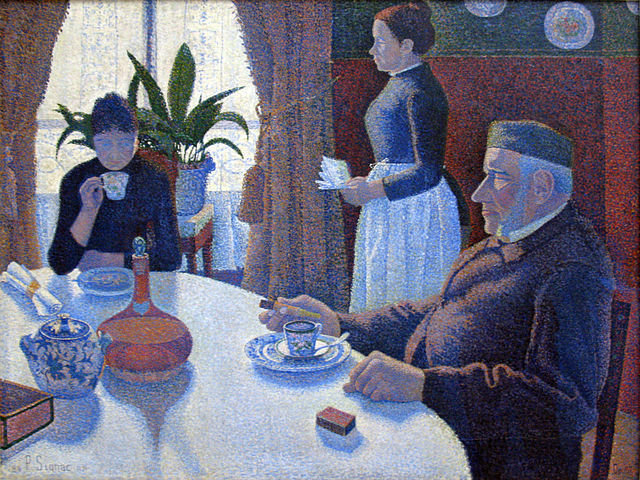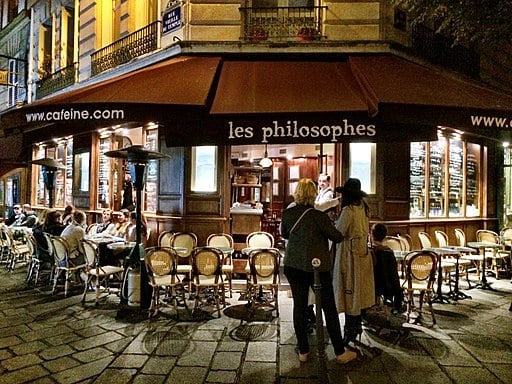Busting the Myth between French, France, and Rudeness
French is renowned for being one of the languages of love, but for some who try to talk to native French speakers it can also be the language of curtness. And an abrupt conversation with a waiter on your first attempt at speaking French might be something that puts you off. Here’s why French and rudeness go hand in hand, why it shouldn’t, and what you can do to avoid awkward situations.

Photo via Wikimedia
The English way is not the only way
If you’re an English speaker, you’re well-versed in going around the houses and finding a million different ways of getting your point across. Generally-speaking, when we meet someone new, there’s a hello, how are you, and at least a some small talk before you get to the conversation you really want to have. This seems friendly, and normal to most of us whose native language is English, but can be confusing for those studying the language—and conversely for us when we apply the same way of thinking when we try to speak other languages.
French isn’t like that. Even in customer service your waiter, shop assistant, and so on might be there to serve you and give you everything your heart desires, but they will do that by getting straight to the point instead of making pleasantries first. Our habit of starting a meaningless conversation before saying what you want is wasted on them, and their abruptness will possibly seem rude to you, even when it isn’t.
Not unfriendly
The French approach to greetings isn’t really all that unfriendly. It is just a case of how well you know a person that dictates how you should behave. In many settings we English-speakers might smile, wave, or even share a hug in our first meetings along with whatever small talk we make, but French speakers tend to save smiles for people they know, and be less, well, smiley for those that they don’t (yet). That makes sense, right?

Photo via Wikimedia
Learning a new language? Check out our free placement test to see how your level measures up!
Of course, this isn’t a blanket, across-the-board truth for every French speaker in the world. In Paris you might be greeted sternly, Limoges welcomed with a smile, and in Montréal, maybe even with a warm hug. Unless of course, you’re speaking to a waiter who was trained in the French hospitality industry. A recent case in Vancouver saw waiter Guillaume Rey filing a complaint with the British Columbia’s Human Rights Tribunal. He is claiming discrimination against his culture after being fired from a position where customers and staff found him curt.
Learning a language
…is about learning more than grammar rules and a list of new words. It’s great to be fluent and not mix up your tenses or subject word order, but unless you know a little about the culture of that language you’re learning or the place you are visiting to use that language, you could be word perfect and still come unstuck.
French is a direct and expressive language which might come across to a new speaker like abruptness with a side of loud. So it’s important to know a little about where you are travelling and get yourself familiar with what to expect. Whether to use an informal tu or formal vous is the first point to consider, along with when is appropriate to shake hands (first meetings, formal settings), or lean in for la bise (the two-cheek kiss). A hug might accompany that kiss but should probably be avoided when you are only up to a handshake acquaintance.

GIF via Giphy
Etiquette
We mentioned small talk being best avoided when conversing in French, but that doesn’t mean ordering from your waiter without a polite bonjour or salut first. And when in doubt, look around you at other customers or the people you are with to see how they are behaving and follow their example.
Other courtesy tips when dining include keeping your arms above the table instead of in your lap, not to arrive too early, and not to eat too much of the first course. Eat what you’re given and do your best not to be too fussy an eater, and if dinner isn’t to your liking and you need something else to fill you up, it’s best to avoid eating on the street on the way home.
In short, learning a language is about more than just learning the words. And while perhaps immersing yourself fully in the history of a country is a little too big an ask for a weekend away, knowing a little about the culture you are going to be embracing temporarily can be no bad thing.
